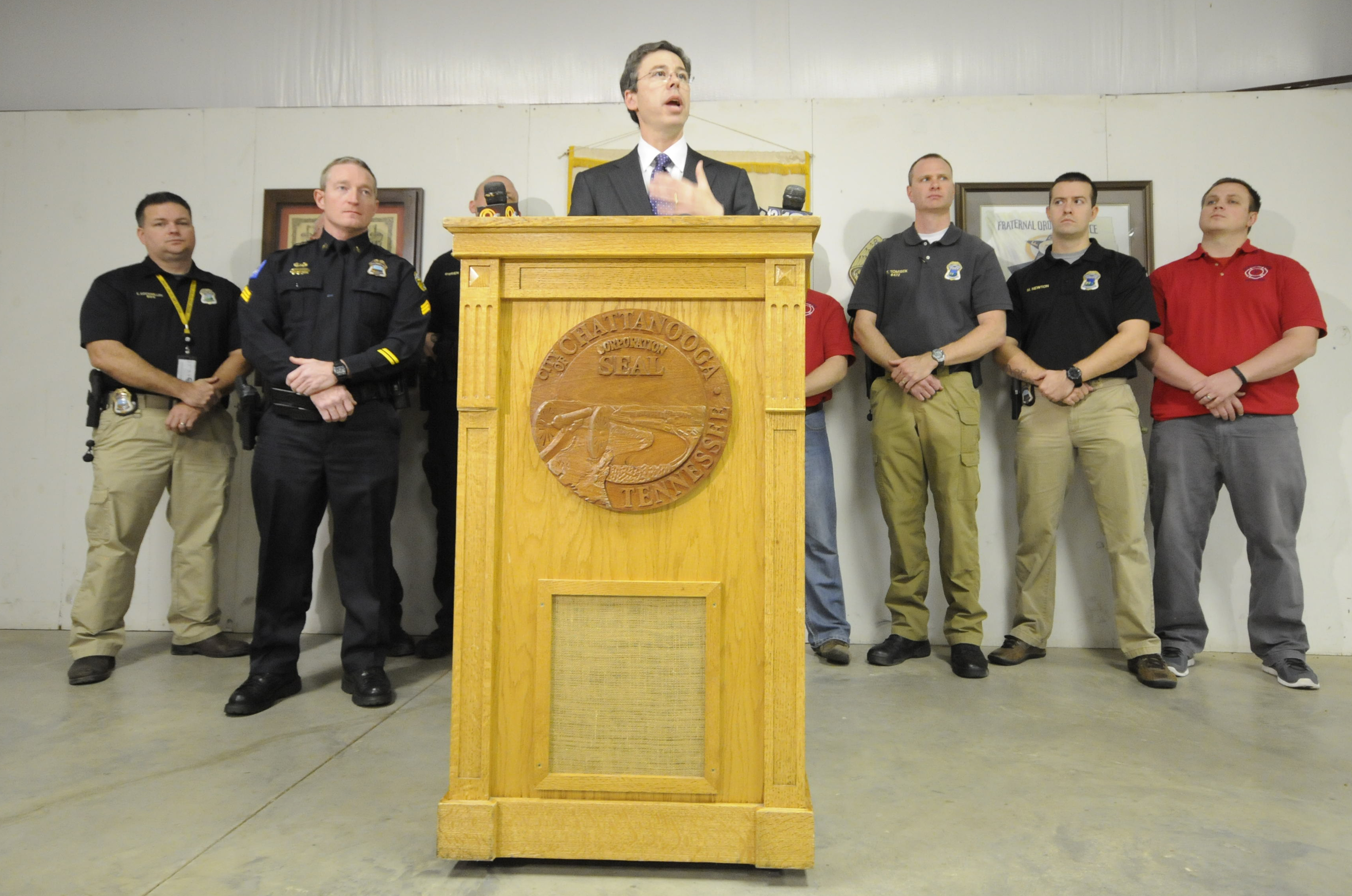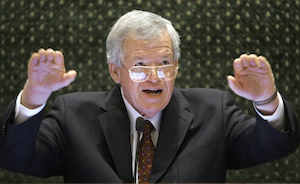Fire and Police Pension Board:Fire Battalion Chief Chris WillmoreCity's Deputy Chief Operating Officer Brent GoldbergPolice Lt. Jerome HalbertMaster Police Officer Phillip McClainSenior Firefighter Mark CoffmanPolice Sgt. Craig JoelFire Lt. Shawn O'KelleyBusinessman Les Lee
Going into negotiations with Chattanooga Mayor Andy Berke's pension reform task force, Fire and Police Pension Board members fought against changes they said would force police and firefighters out the door.
But in the end, economic realities convinced the pension board to accept a compromise that costs employees more out of pocket and delivers retirees a bit less as a way to ensure the fund's future.
"I went into this thing fighting. But passion gave way to fact at the end of the day," said board member Craig Joel, a Chattanooga police sergeant.
The eight board members -- firefighters, officers and financial experts -- voted unanimously Thursday to approve reforms that will hike employee contributions by nearly 40 percent and cut retirees' cost-of-living adjustments while saving the city $227 million over the next 26 years. The final stop is at the City Council, which will vote three times on the reform starting Tuesday.
Board President Chris Willmore has said the board received pressure on all sides of the debate, but ultimately this plan was the best solution to managing the cuts equally among active and retired workers and to ensure the fund is sustainable.
Berke Chief of Staff Travis McDonough said anyone who examined the future costs of sustaining the current pension could see it would take a tax increase for the city to keep meeting its obligations.
"I think as people started figuring out how much of a tax increase it would have taken to fund the pension plan on the projection ... the more they realized we needed to take precautions," he said.
But some retirees who believed the board gave up too much ground to help Berke reduce pension expenses walked out of Thursday's meeting mumbling that the board had caved to political interests.
"They were intimidated," said Johnny Frazier, who led the protest when the agreement was unveiled last month.
The outcome this time was much different from 2012, when then-Mayor Ron Littlefield's chief of staff Dan Johnson also argued that the plan was unsustainable and warned that the next City Council would have to make changes.
Fund administrator Frank Hamilton argued in a 2012 Times Free Press story that wasn't the case.
"We're just in a difficult time right now," he said.
Sharply reduced investment returns caused by the Great Recession, along with longer lifespans for retirees and generous benefits promised during better times, have undermined the financial health of many public pension plans. Fire and police pensions such as the one in Chattanooga are especially vulnerable because participants aren't included in Social Security and retirement benefits are paid to many workers still in their 40s.
A recent study showed Chattanooga's plan was among the richest among 15 other Southeast cities studied, including Nashville, Knoxville and Charlotte, N.C.
When Berke named an 18-member task force and hired a consulting firm, board members claimed the city had exaggerated the urgency of the situation. Board members challenged the task force on several options considered early in the talks, including a plan that would have eliminated many of the pension increases approved in a public referendum in 1999.
In January, board spokesman Vince Butler said the plan's funding had slipped to only 52 percent of what it should be to deliver promised benefits. Keeping the plan as is would have required the city to triple its annual contribution by 2038, from $14.4 million to nearly $40 million.
On Thursday, some employees who spoke publicly for the first time about the months of compromise and controversy agreed they were convinced the changes are fair after realizing the dire straits the fund faces.
"I was angry and I felt like it was a conspiracy by the city not to fund our pension, but over the last six months I've learned quite a bit about the pension," said firefighter Charlie Thomason. "My opinion changed after looking at the hard evidence. I feel like the changes y'all are trying to make ... are reasonable."
A few retirees and active employees believe the changes should have included more public input and some believe the reform, specifically reducing the automatic 3 percent COLA increases, are illegal. Frazier said the group will look into a lawsuit, although its Nashville attorney was discouraging in a recent letter to the group.
After the roll call vote Thursday, one board member tried to defend the gravity of the decision they had just made.
"For those staying, this process has not been easy," member Mark Coffman said.
Adding that he has less than 10 years of service and will be affected by multiple cuts, he said, "I stand to lose more than anybody else sitting on this board. No one wants to give up anything. But these decisions have to be made, sleep has to be lost, stomachs have to be turned and at the end of the day we've got to make hard decisions."
Contact staff writer Joy Lukachick at jlukachick@timesfreepress.com or 423-757-6659.


